In our fast-paced modern lives, lightweight household products have become increasingly popular. From kitchenware to furniture, electronics, and home décor, people value items that are easy to handle, portable, and yet durable. One material that has revolutionized the world of lightweight household products is aluminum. Known for its versatility, aluminum finds its application in various aspects of our daily lives, offering numerous benefits. In this article, we will explore the ways in which aluminum is used in lightweight household products and delve into its advantages.
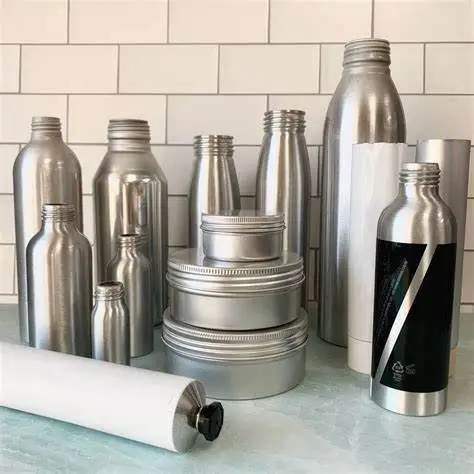
The Advantages of Aluminum as Household Products
Aluminum possesses several inherent properties that make it an ideal choice for lightweight household products. Firstly, aluminum is exceptionally lightweight. With a low density compared to other metals, it allows manufacturers to create items that are easy to carry, move, and handle. Whether it’s a pot, a chair, or a smartphone, the lightweight nature of aluminum enhances portability and convenience.
Secondly, aluminum exhibits remarkable strength and durability. Despite its lightweight nature, aluminum is known for its structural integrity and resistance to wear and tear. This means that household products made from aluminum can withstand the rigors of everyday use, ensuring they last longer and retain their functionality over time.

Another advantage of aluminum is its resistance to corrosion. When exposed to air, aluminum forms a protective oxide layer that prevents rusting and deterioration. This corrosion resistance makes aluminum products suitable for use in different environments, including humid kitchens, outdoor spaces, and bathroom settings. It also ensures that these products retain their appearance and functionality, even after prolonged exposure to moisture.
Furthermore, aluminum is highly recyclable. As a sustainable material, aluminum can be melted down and reused to create new products, reducing the demand for extracting and processing raw materials. This recyclability aligns with eco-consciousness and helps minimize the environmental impact of manufacturing lightweight household products.

Aluminum is commonly used in household products in the 1000 series and 3000 series. The 1000 series aluminum alloy includes 1050 aluminum alloy, 1060 aluminum alloy, 1070 aluminum alloy, 1100 aluminum alloy, etc., while the 3000 series aluminum alloy includes 3003 aluminum alloy, 3004 aluminum alloy, etc. 1000 series aluminum alloys and 3000 series aluminum alloys both have excellent corrosion resistance and machinability. 1000 series aluminum alloys are suitable for some applications that do not require a high degree of strength, while 3000 series aluminum alloys are suitable for applications that require a higher degree of strength and corrosion resistance. Choosing the right aluminum alloy depends on the specific application needs and performance requirements.
Aluminum as Household Products in Kitchenware
One area where aluminum shines is in the realm of kitchenware. From pots and pans to baking sheets and trays, aluminum is widely used due to its excellent heat conductivity. Aluminum cookware distributes heat evenly, ensuring that food is cooked uniformly. Moreover, aluminum heats up and cools down quickly, making it efficient for cooking tasks.
The lightweight nature of aluminum cookware is a significant advantage for home cooks. It allows for easy handling and maneuvering in the kitchen, reducing the strain on wrists and arms. Additionally, the non-reactive surface of aluminum ensures that flavors and odors from previous cooking are not absorbed, making it a safe and hygienic choice for food preparation.
Cleaning aluminum kitchenware is a breeze as well. Its smooth surface is relatively easy to clean, and it is often dishwasher safe. These qualities make aluminum an attractive option for those seeking practical and functional kitchen products.
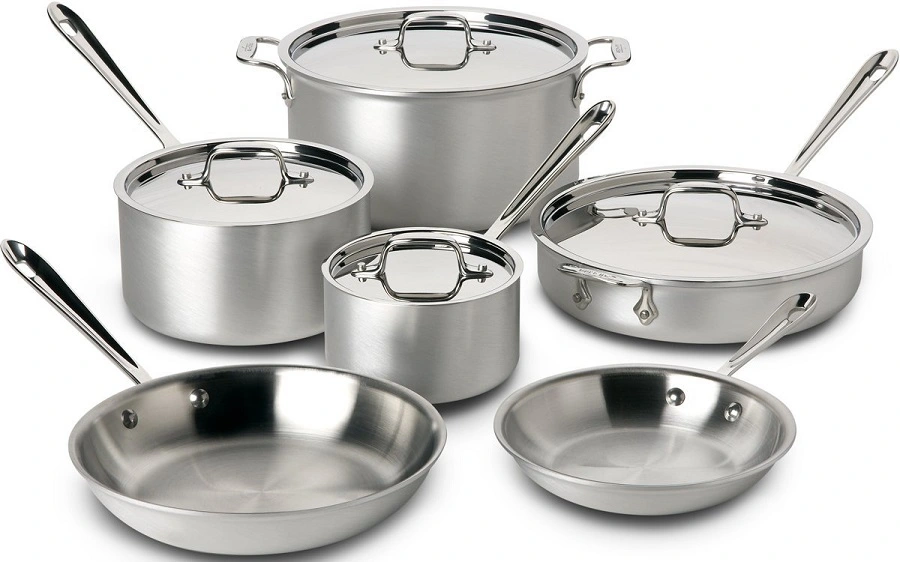
Aluminum as Household products in Furniture
Aluminum’s application extends to furniture design, offering lightweight and durable solutions. Chairs and tables made from aluminum are popular choices for both indoor and outdoor settings. The lightweight nature of aluminum furniture makes it easy to rearrange or move around, providing flexibility in interior design.
Outdoor furniture, in particular, benefits from aluminum’s corrosion resistance. It can withstand exposure to various weather conditions without rusting or deteriorating. This quality ensures that outdoor furniture made from aluminum remains in good condition for longer periods, even when subjected to rain, sunlight, or harsh environments.
Aluminum furniture also has a sleek, contemporary style. It may be formed into many different forms and patterns, providing a variety of aesthetic alternatives. A touch of sophistication is added to any room by aluminum furniture, whether it’s a simple chair or a table with exquisite design.
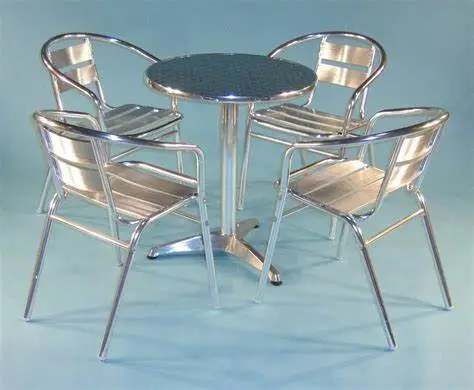
Aluminum as Household Products in Electronics
Electronic device manufacture depends heavily on aluminum. Aluminum is frequently used in the construction or casing of speakers, audio equipment, smartphones, and laptops. In the electronics sector, aluminum’s small weight is highly prized as it enables thinner and lighter equipment that are simpler to carry and move around.
Aluminum is a perfect material for electronic products due to its outstanding heat dissipation qualities. It aids in heat dissipation from components, ensuring appropriate operation and avoiding overheating. For devices with high-performance capabilities, this characteristic is particularly crucial.
Apart from its functional advantages, aluminum brings a premium and stylish aesthetic to electronic devices. The metallic finish of aluminum casings gives a sleek and sophisticated look, enhancing the overall appeal of smartphones, laptops, and other gadgets.
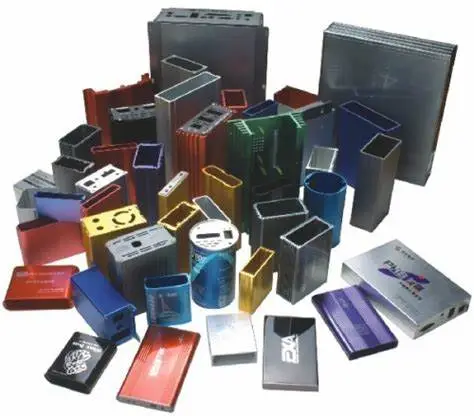
Aluminum as Household Products in Packaging
- Foil Wraps and Containers: Aluminum foil is extensively applied for wrapping and storing food in households. It is generally used to wrap leftovers, sandwiches, and other perishable items to keep their freshness and prevent spoilage. Aluminum foil containers are also excellent for packaging takeout meals, catering, and baking purposes.
- Food Storage Bags: Aluminum is used as a layer in some food storage bags and pouches. These bags offer a barrier against moisture, light, and oxygen, helping to protect the quality and prolong the shelf life of the packaged food.
- Baking Pans and Trays: Aluminum pans and trays are generally used in households for baking and roasting purposes. They provide excellent heat conductivity, making sure even cooking and browning of food items. Aluminum baking pans and trays are lightweight, disposable, and easy to clean.
- Beverage Caps and Closures: Aluminum is used in the production of caps and closures for many kinds of household beverages, including water, soft drinks, juices, and alcoholic beverages. Aluminum closures offer a secure seal, preventing leakage and keeping the freshness of the beverages.
- Aerosol Canisters: Aluminum is applied in the production of aerosol canisters for household products such as air fresheners, cleaning sprays, and personal care items. Aluminum aerosol cans provide a lightweight and durable packaging solution, facilitating easy dispensing of the products.
- Beauty and Personal Care Packaging: Aluminum is extensively applied in the packaging of beauty and personal care products such as shampoos, lotions, creams, and cosmetics. It is applied in the form of tubes, bottles, jars, and closures, offering an attractive and protective packaging method.
- Household Cleaners: Aluminum is applied in packaging household cleaning products such as surface cleaners, disinfectants, and polishes. It offers a sturdy and reliable packaging choice that protects the contents and makes sure user convenience.
Aluminum as Household Products in Home Décor and Accessories
Aluminum finds its way into various home décor items and accessories, offering a blend of functionality and design. Picture frames, wall art, mirrors, and decorative objects often incorporate aluminum due to its lightweight nature. Aluminum frames make hanging pictures and artwork effortless, while the use of aluminum in mirrors provides a durable and lightweight alternative to traditional materials.
The versatility of aluminum allows for a wide range of design options. It can be shaped, molded, and textured to create intricate and eye-catching home décor pieces. Additionally, aluminum’s resistance to fading and discoloration ensures that these items maintain their aesthetic appeal over time, even when exposed to sunlight or indoor lighting.
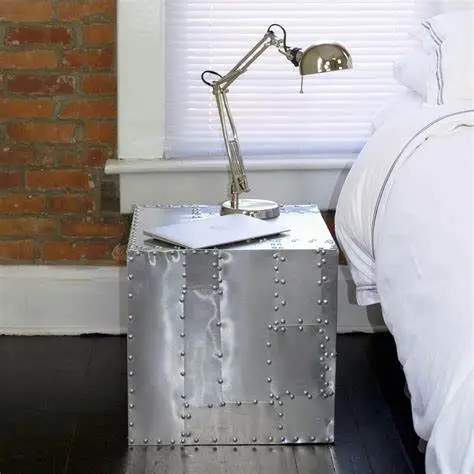
Aluminum as Household Products in Laundry
- Washing Machines: Aluminium is used in washing machine tubs due to its corrosion resistance and lightweight properties.
- Dryers: Aluminium is used in dryer drums for its lightweight nature, which allows for faster drying cycles.
Aluminum as Household Products in Cleaning
- Vacuum Cleaners: Aluminium is used in vacuum cleaner bodies and handles to provide a lightweight and easy-to-handle design.
- Steam Cleaners: Aluminium is used in steam cleaner components for its heat conductivity and lightweight properties.
Aluminum as Household Products in Personal Care
- Hair Dryers: Aluminium is used in hair dryer bodies and handles to provide a lightweight and ergonomic design.
- Electric Shavers: Aluminium is used in electric shaver bodies for its lightweight and corrosion-resistant properties.
Aluminum has become a staple material in the realm of lightweight household products, offering numerous advantages across various categories. Its lightweight nature, coupled with strength, durability, corrosion resistance, and recyclability, makes it an ideal choice for kitchenware, furniture, electronics, and home décor.
In the kitchen, aluminum cookware provides even heat distribution, quick heating/cooling, and easy maintenance. Aluminum furniture offers portability, weather resistance, and modern aesthetics. In electronics, aluminum contributes to lightweight devices with efficient heat dissipation and a premium appearance. And in home décor, aluminum brings functionality, versatility, and long-lasting beauty.

Aluminum will probably continue to play a key part in the design and production of lightweight household goods as long as we continue to seek convenience, portability, and sustainability in our daily lives. Because of its special qualities, people who value use, sturdiness, and aesthetic appeal favor it as a material.
When it comes to offering lightweight, functional, aesthetically pleasing solutions, aluminum improves our daily experiences whether we’re preparing a tasty meal, relaxing on patio furniture, utilizing electronics, or adorning our houses. With its benefits and adaptability, aluminum stands out as a key component in the realm of lightweight household goods.
FAQ
What are the top 4 uses of aluminium?
Aluminium is primarily used in the manufacturing of transportation vehicles, construction materials, packaging, and electrical wiring due to its lightweight, corrosion-resistant, and conductive properties. It is also widely utilized in the aerospace industry for its strength-to-weight ratio.
What is the best lightweight metal?
Aluminium is often considered the best lightweight metal due to its low density, making it lighter than other commonly used metals such as steel or copper.
Where is aluminum used in industry?
Aluminium is used in various industries for a wide range of applications. It is commonly used in the transportation industry for manufacturing automobiles, aircraft, and marine vessels. It is also extensively utilized in the construction industry for building facades, doors, windows, roofing, and structural components. Additionally, aluminium finds its use in the packaging industry for cans, foils, and containers due to its lightweight and corrosion-resistant properties. Moreover, it is employed in electrical wiring, power transmission lines, and heat sinks in the electronics industry.


